November 2019 national eResearch newsletter
Welcome to the November 2019 AeRO eResearch Newsletter
Message from the AeRO CEO
Huge thank-you to everyone who attended eResearch Australasia last month. With 500+ attendees, this was our biggest conference attendance to date, and we are pleased to see an increase in international attendees – especially form our colleagues in NZ and ASEAN.
On behalf of my Conference Co-Chair Matt Bellgard (QUT), we’d like to thank the Organising and Program Committees for their assistance, as well as the keynotes, attendees, presenters, session chairs and our exhibitors and sponsors who made the event such as success. We look forward to seeing you all at eRes2020 in Perth https://conference.eresearch.edu.au/.
Our next exciting event is the C3DIS Collaborative Conference on Computational and Data Intensive Science 2020 (C3DIS 2020), to be held the week of 16-20 March in Melbourne. See the article below.
A reminder to check out our new collaboration platform at https://chat.aero.edu.au/ where you can join the discussions on many topics including RSE, eResearch Champions, Diversity and much more, as well as post jobs and events. We look forward to your contributions!
Sam Moskwa, AeRO CEO.
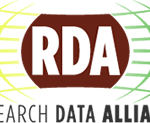 |
Global Survey of RDM Services: by 15-Nov
The Research Data Architectures for Research Institutions (RDARI) Interest Group of the Research Data Alliance is conducting a survey of the research data management services offered by universities and research institutions around the world. This will enable comparisons to be drawn between different institutions and help establish benchmarks for service provision. The length of time taken to complete the survey will vary, but we estimate that 30 minutes should be adequate in most instances.
The results of the survey will be shared with respondents after it has closed on the 15th November 2019, and published as open data shortly thereafter.
Please visit https://opinio.ucl.ac.uk/s?s=63105 to complete the survey. |
 |
Pawsey Sydney Training & User Forum: 27-Nov
If you are in Sydney, please join us at the User Forum at the Sydney Informatics Hub on 27-Nov for an update on the $70 million upgrade to Pawsey Supercomputing Centre’s infrastructure. You can also enrol for User Training at: https://pawsey.org.au/event/pawsey-training-sydney-27-28-november-2019/.
Pawsey staff are taking the opportunity to discuss your experiences using Pawsey services. We want to hear from you to find out what we are doing well and where we can improve. Do not wait until the end of year survey, join us to have your say! Your feedback can cover all aspects of interactions with the Pawsey Supercomputing Centre.
Visit this page to register: https://pawsey.org.au/event/pawsey-user-forum-sydney-27th-november-2019/. |
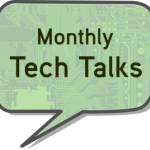 |
TechTalk on Sensitive Data: 6-Dec
The Tech Talk this coming month (Friday, 6-Dec, 3pm AEDT) is on Systems to Manage Sensitive Health and Medical Data.
The Tech Talks are a monthly community gathering to showcase and discuss the technical side of Australia’s research infrastructure.
Register at: https://techtalkau-sensitivehealthsystems.eventbrite.com.au.
Details of Tech Talks (past and future) can be seen at https://www.meetup.com/monthlytechtalk/. |
| eResearch Support Registry
Did you know AeRO has a National eResearch Support Registry that lists all support communities, Hacky Hours and Digital Drop-in sessions? Check out http://aero.edu.au/national-eresearch-support-registry/ to find support close to you, or email loretta@aero.edu.au to list your support service. While you’re there, check out the eResearch Support Resources at http://aero.edu.au/national-eresearch-support-resources/ or consider becoming an eResearch Champion http://aero.edu.au/champions/. |
|
 |
Webinar: Identifiers for Instruments: 9-Dec
You are invited to attend this webinar and to promote it among your contacts. Andrew Mehnert (UWA) and Andrew Janke (UniSyd) will be presenting. ARDC (Tom Honeyman and Paula Andrea Martinez are organising). It starts a series of recurring events.
Identifiers for Instruments, a new Community of Practice – 3pm AEDT 9th December.
Interested in Identifiers for Instruments? The National Imaging Facility, Microscopy Australia and the ARDC welcome you to a new Community of Practice.
See https://register.gotowebinar.com/register/5736458229073525261. |
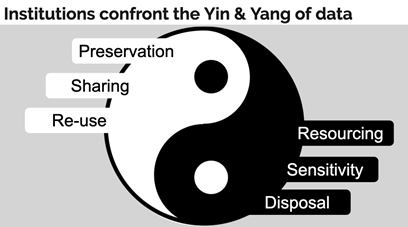 |
Research Data Culture – Addressing the Yin and Yang of the Data Life Cycle: 10-Dec
Data volumes are rising in a way that challenges university responses. The Research Data Culture (RDC) group seeks to meet these challenges in a coordinated manner. If you can represent one of the key support pillars at your university (Archives, eResearch, ICT, Library, Records, Research Office) then your input into the group would be highly valued.
Join us to discuss the different roles institutions and the Australian Research Data Commons could play in addressing the Yin and Yang of data on 10 December in Sydney. |
 |
C3DIS 2020 in Melbourne 16-20 Mar
C3DIS Collaborative Conference on Computational and Data Intensive Science 2020 (C3DIS 2020), to be held the week of 16-20 March in Melbourne.
C3DIS builds a national community of practice of scientists, researchers, and computing, data and information management specialists from public sector research organisations to develop breakthrough science outcomes that require large scale, complex computations and analyses to be carried out over massive data sets. Registrations and call for presentations and posters are now open at http://www.c3dis.com/.
This event will be co-located with the Research Data Alliance (RDA) 15th Plenary. https://www.rd-alliance.org/plenaries/rda-15th-plenary-meeting-australia. |
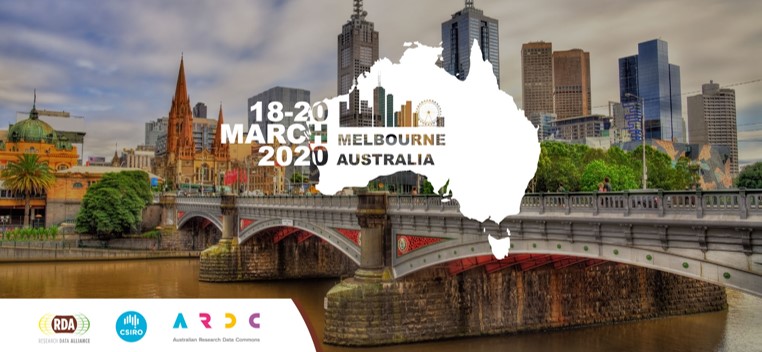 |
Research Data Alliance Plenary in Melbourne: 18-20 Mar
The Research Data Alliance (RDA) is coming to Australia! If you are interested in research data challenges and technologies, now is the perfect time to get involved with RDA – an international community-driven organisation with more than 9,300 members globally, representing more than 137 countries.
The call for Sessions and BoFs for the RDA Plenary 15 in Melbourne, 18-20 March 2020, closes on 28th of November at https://www.rd-alliance.org/plenaries/rda-15th-plenary-meeting-australia. Check out the infographic at https://www.rd-alliance.org/group/rda-australia/wiki/road-melbourne-how-get-most-out-plenary to help you prepare for what is sure to be an amazing meeting.
More information soon at https://www.rd-alliance.org/plenaries/rda-15th-plenary-meeting-australia. |
| Understanding ICT Needs of Researchers at Curtin University
The Curtin University eResearch Special Interest Group recently conducted the ICT in the Research Workflow survey. This was done to capture the ICT needs of researchers at Curtin and to compare the current state with that of 2012, when this survey was last conducted, with the intention of informing planning and support for researchers.
The survey report and data are now available online at http://doi.org/10.25917/5d9d651303fef and http://dx.doi.org/10.25917/5dc24e6845ef2. |
|
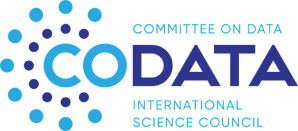 |
Beijing Declaration on Research Data has been released by CODATA
The Beijing Declaration (http://www.codata.org/uploads/Beijing%20Declaration-19-11-07-FINAL.pdf) is intended as a timely statement of core principles to encourage global cooperation, especially for publicly funded research data. It builds on and acknowledges the many national and international efforts that have been undertaken in the policy and technical spheres on a worldwide basis.
The definition of data is broad and includes data (stricto sensu) as well as the ecosystem of digital things that relate to data.
More background information is available at http://www.codata.org/news/361/62/The-Beijing-Declaration-on-Research-Data. ARDC, CSIRO, and the Australian Academy of Science contributed to this work. |
 |
Zoos Victoria and CeRDI: eResearch Opportunities to Fight Extinction
Federation University Australia’s Centre for eResearch and Digital Innovation (CeRDI) has signed an agreement with Zoos Victoria to collaborate on a multiyear project to provide information technology services and eResearch expertise tied to the Zoos Victoria ‘Fighting Extinction’ program, with the aim of preventing the loss of threatened wildlife. CeRDI will create a framework for eResearch approaches. Information about the Zoos Victoria’s ‘Fighting Extinction’ priority threatened species can also be seen through the State Wide Integrated Flora and Fauna Teams (SWIFFT) and Visualising Victoria’s Biodiversity (VVB) platforms.
Zoos Vic Fighting Extinction website: www.zoo.org.au/fighting-extinction. SWIFFT website: www.swifft.net.au. VVB website: www.vvb.org.au. |
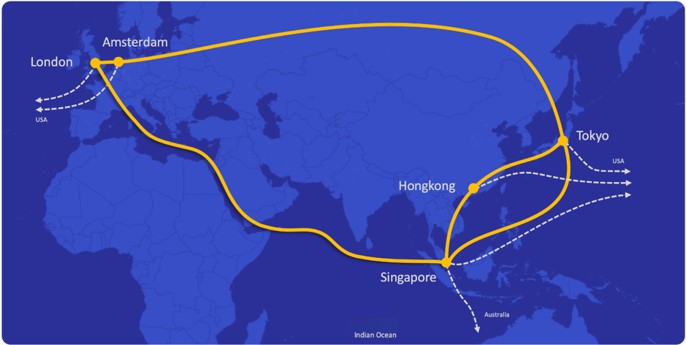 |
Moving Research Data Faster Around the World
AARNet engineers put new international network links to the test and achieve 49.8 Gigabits per second (Gbps) sustained throughput between Australia and Europe for research data transfers. Impressive results were achieved recently during long distance performance testing with live research data transfers over the AARNet spectrum of the new Indigo subsea cable system connecting Sydney, Perth and Singapore, and over the new CAE-1 (Collaboration Asia Europe) link connecting Singapore to London.
See https://news.aarnet.edu.au/moving-research-data-faster-around-the-world/. |
 |
Tender Release for Australia’s New Research Supercomputer
The Pawsey Supercomputing Centre, through CSIRO, has today released on AusTender the major tender in a $70m capital refresh project.
Pawsey is tendering for a new supercomputing system that will replace its existing Magnus and Galaxy supercomputers. Funded by a grant from the Australian Government, the infrastructure upgrade will allow Pawsey to keep pace with global advances in supercomputing technology.
Mark Stickells, Pawsey’s Executive Director, said the upgrade will deliver significantly increased computing power and speed, providing more efficient high-performance computing services for Australian researchers.
Read the full story here: https://pawsey.org.au/tender-release-for-australias-new-research-supercomputer/. |
 |
CS3MESH: a Globally-Connected Research Data Cloud Collaboration Platform
Australia’s Academic and Research Network, AARNet, is an international collaborator in a European Union-funded project led by CERN, the European Organization for Nuclear Research. The project, called CS3MESH, aims to build a global interoperable mesh of synchronization and sharing cloud services as part of the European Open Science Cloud (OESC) by federating cloud storage sites and software providers around the world.
See https://news.aarnet.edu.au/cs3mesh-a-globally-connected-research-data-cloud-collaboration-platform/. |
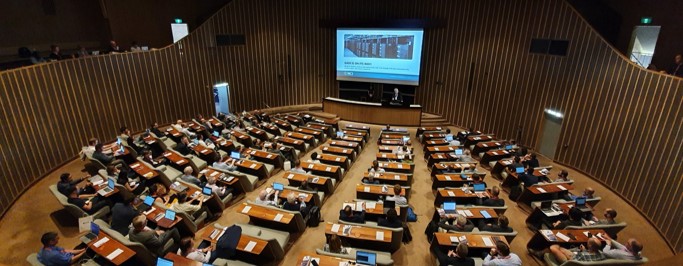 |
A Gathering of Australia’s High-Performance Communities
The inaugural Australasian Leadership Computing Symposium, organised by NCI Australia, the Pawsey Supercomputing Centre and the New Zealand eScience Infrastructure, took place last week in Canberra. Based out of the Australian Academy of Science’s famous Shine Dome, ALCS brought together scientists from five key disciplines (astronomy, climate and weather, genomics, geosciences and materials science) to share and discuss common issues and challenges that they face in the HPC and HPD space.
Read more about the event here: https://nci.org.au/news-events/news/a-high-performance-community and have a look at the #ALCS2019 hashtag on Twitter to catch up on all the action! |
 |
From Global to Local: Climate Change Predictions for your own Backyard
The south-west of WA is a region of significant cropland farming and viticulture, worth $3,000-5,000 million annually. It is also a globally-recognised biodiversity hotspot and home to some of Australia’s most iconic forests. Everything the south-west is notable for is sensitive to changes in rainfall and temperature.
Global climate models (GCMs) are used to simulate climate across the globe, at a spatial resolution of 100–250 km. But Dr Jatin Kala has been using Pawsey supercomputing facilities to develop climate models at 5 km resolution, to better understand how climate change impacts manifest at local scales.
|
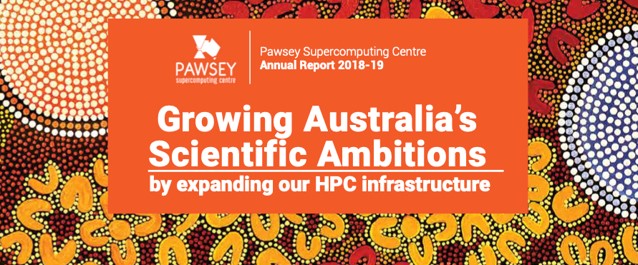 |
Pawsey 2018-2019 Annual Report Now Out
The Pawsey Supercomputing Centre’s 2018-2019 Annual Report, “Growing Australia’s Scientific Ambitions by Expanding our HPC Infrastructure” is now available.
It showcases the breadth of research supported by Pawsey’s computing and data infrastructure and the people who are making it possible. It also highlights the services and resources provided to the Australian research community along with the impact our expertise and infrastructure has had on several critical research projects.
The Pawsey annual report can be found here: https://pawsey.org.au/about-us/documents-library-annual-reports/. |
 |
Pawsey Capital Refresh Project Update
As part of the Pawsey Capital Refresh, the Pawsey Supercomputing Centre is boosting high-speed storage for researchers from the Australian Square Kilometre Array Pathfinder (ASKAP) and the Murchison Widefield Array (MWA) by providing three times as much storage and three times as much performance.
All the information about this expansion can be found here: https://pawsey.org.au/three-times-more-storage-and-performance-for-ska-pathfinders-at-pawsey/. |
 |
Pawsey GPU Capabilities
The Pawsey Supercomputing Centre is pleased to officially announce the arrival of Topaz, a new commodity Linux cluster, provided by Xenon, which will be complementary to the “stepping stone” system Zeus (https://pawsey.org.au/systems/zeus/).
Topaz is currently undergoing final configuration and testing with the assistance of invited Pawsey researchers, and we anticipate Topaz to be in full production in January 2020.
You can find out more about Topaz here: https://pawsey.org.au/topaz/.
|
 |
WHPC Summit 2020 – Call for Submissions is Open
The first Women in HPC Summit, in partnership with Simon Fraser University, will be held in Vancouver, British Colombia, on 29 April – 1 May 2020.
The Summit is designed to celebrate the contributions, careers, and leadership of women in High-Performance Computing. It will bring together like-minded women from the HPC industry to learn from each other and build their networks. WHPC is a supportive group, designed to advocate for one another and encourage continued growth and development in HPC.
Call for submissions is now open at https://womeninhpc.org/events/summit-2020#!/submissions.
|
| eResearch Jobs
AeRO provides details of the latest eResearch job opportunities in the sector. Jobs are posted immediately to https://twitter.com/AeRO_eResearch, and the website at http://aero.edu.au/jobs/ is also updated. This is a free service for the whole eResearch community – to advertise a position, simply email loretta@aero.edu.au. Here’s a sample of current vacancies: Senior Data Scientist, eResearch Engagement Specialist, QCIF CEO, eResearch Data Systems Analyst, Senior eResearch Analyst, Science and Technology Australia CEO, Research Fellow in Trusted Observational Data. |
Contributions
This newsletter is based on contributions provided by members of the eResearch community, and draws on news articles and newsletters published across the sector. The Newsletter is published around the 16th of each month.
Please send any contributions (max. 100 words, plus a link and image) or pointers to any other relevant articles or newsletters to editor@aero.edu.au
Archives of these Newsletters are held at http://aero.edu.au/newsletters/.
Click HERE to add yourself to the eResearch Mailing List.
Thanks,
—AeRO Newsletter Editor

